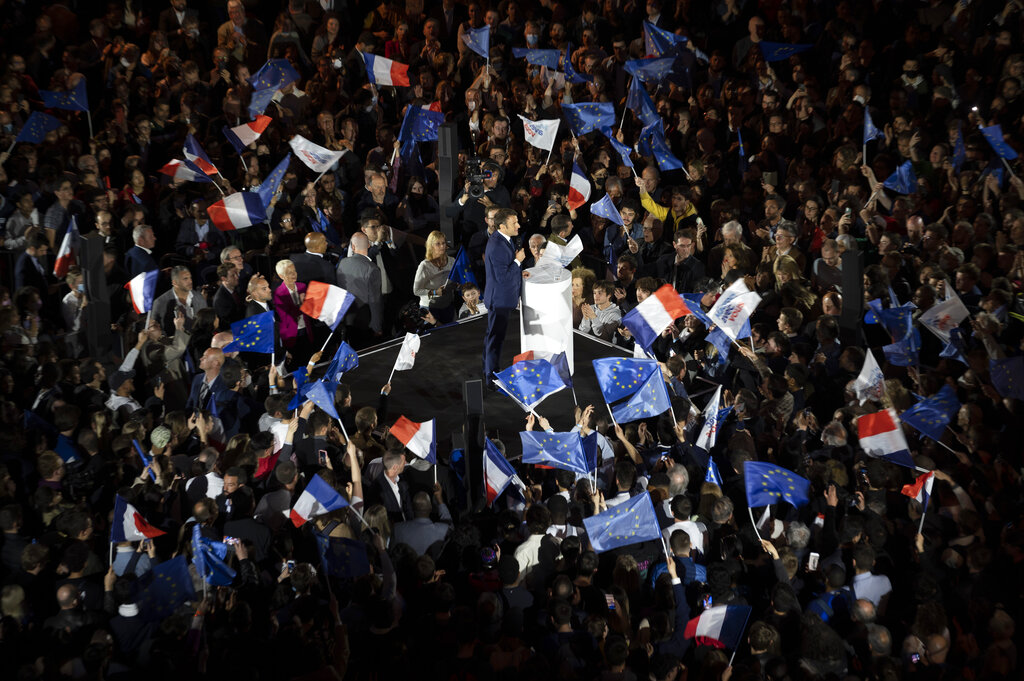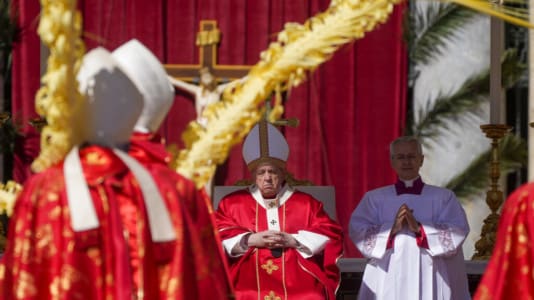The results of the French election pretty much confirmed the polls: as expected, Emmanuel Macron and Marine Le Pen made it to the second round.
In reality, however, the first round was a three-horse race with not just the incumbent liberal head of state and the third-right right-wing sovereign Le Pen, but also veteran far-left Jean-Luc Mélenchon. Their vote shares of 28 percent, 23 percent and 22 percent respectively left everyone else trailing in their wake.
The reasons could be analyzed at length, but one thing is obvious: the French are dissatisfied. Issues such as immigration or Islamization play a very important role in this, which is why Le Pen and the publicist Éric Zemmour, who ended up earning only 7 percent, got special attention. True, it should be added, this is a result that cannot be ignored at first, and Zemmour must be reckoned with in the future of the French right because the “traditional” center-right Republicans have collapsed — their candidate, Valérie Pécresse, received just 5 percent of the vote.
But there was another burning problem, the economy: the French fear that their money was getting them less and less. The epidemic has affected many badly, and let us not forget that the Yellow Vest movement started as early as the end of 2018, long before the pandemic, revealing a deeper social discontent. Mélenchon successfully appealed to a very respectable section of the people.
And the weight of his success is only increased by the fact that in the meantime the candidates of other left-wing formations have remained in the range of a few percent. The other traditional force, the socialist candidate Anne Hidalgo, received just 1.75 percent, so even the Republicans have something to rejoice about. So much for the big parties and the traditional status quo.
For now, it’s hard to say what the outcome will be in the second round on the April 24. The paper form would be for everyone to band together against Le Pen and vote Macron, saying the “far-right threat,” as it is written in the left-liberal hysteria press, must be stopped. However, Le Pen also has reserves this time around, and Zemmour has encouraged his supporters to support her, so the question is still open.
Of course, the most important thing for Hungary is what it means to us. Emmanuel Macron, as he put it before his last visit to Budapest, sees Viktor Orbán as his ideological opponent but political partner. This is a good summary of the past few years.
There was a time when Macron defined his own concept of Europe against that of Viktor Orbán, yet they have successfully formed an alliance together on important issues in the European Council. Macron knows that Viktor Orbán is a politician with stable support who has political influence beyond the size of the country and can be built on his word.
If Marine Le Pen wins, there is no doubt, of course, that there will be a huge boost to right-wing alliance-building in Europe, somewhat battered by differences over the war. The principle of a Europe of nations would be reaffirmed, which is a key issue for us, as a strong Europe can only be built on strong nations.
Whoever the French elect as president, Hungary will be able to work with him or her.






